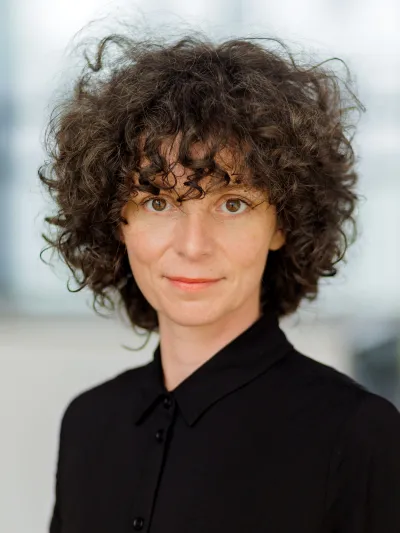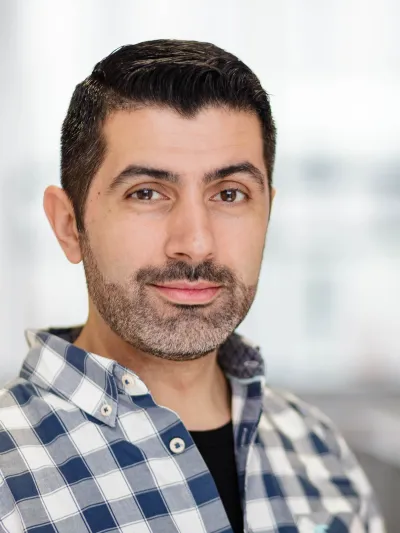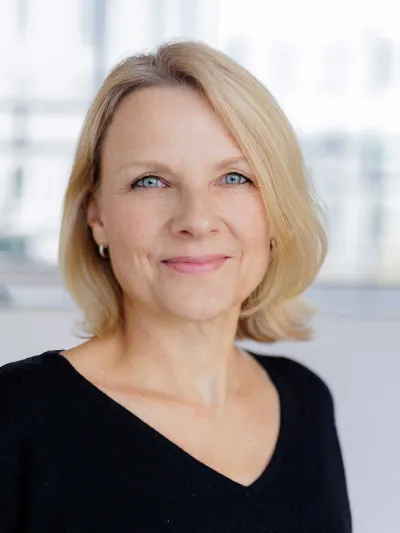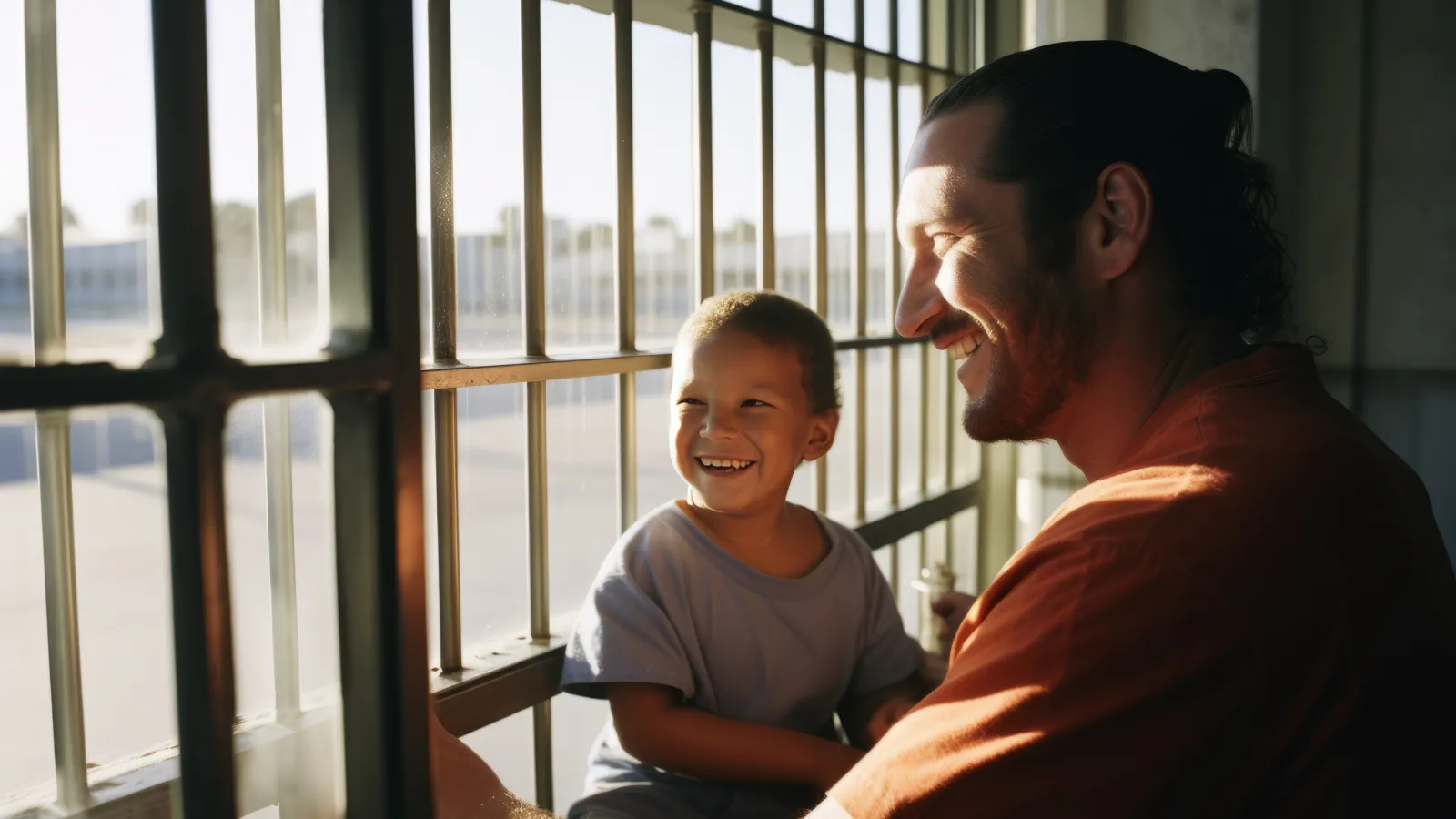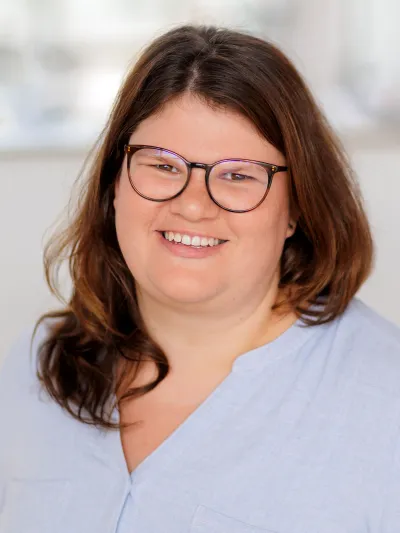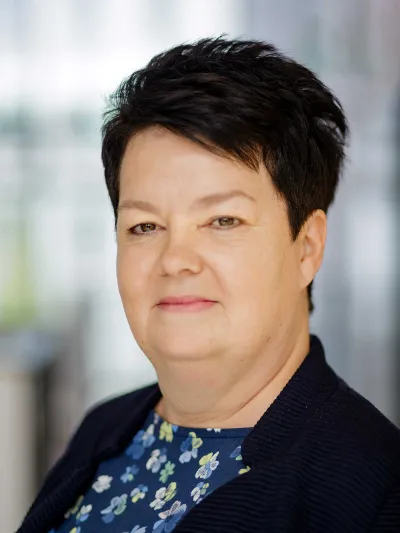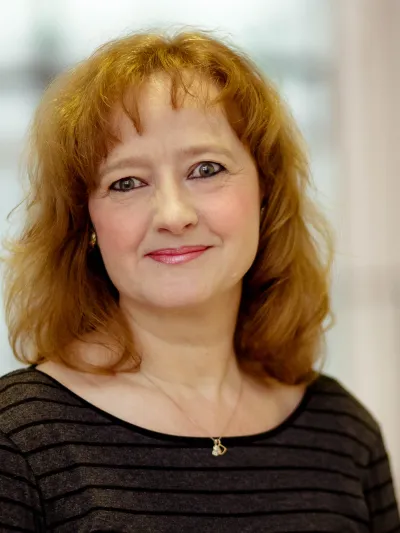In the degree program BA Early Childhood Education (BABEK) you will be qualified for the pedagogical work with children aged 0 to 12 years and the cooperation with families. In doing so, you will deal with concepts of childhood education and theories of developmental psychology, through which you will acquire comprehensive knowledge about the educational and developmental processes of children. You will be able to apply and reflect on this knowledge in the internships accompanying your studies in daycare centers, after-school care centers or family centers. This close connection between theory and practice enables you to gain in-depth insights into the upbringing and education of children and, with the acquisition of the bachelor degree, also state recognition as a childhood educator.
6 semesters; incl. practice days and weeks totaling 840 hours
15.05. – 15.07. (admission restricted)
180 ECTS credits
The Study
BABEK – Familiar learning atmosphere with high practical relevance
In the BABEK degree programme, students and teachers share the goal of providing children with the best possible support in their development. The organisation and structure of the course enable a trusting and personal relationship between students and teachers. The six-semester full-time degree programme focuses on collaborative learning and research in seminars, an informal learning atmosphere and a high level of practical relevance. Weekly practical days and internships lasting several weeks allow students to directly apply and reflect on their theoretical knowledge. During the practical phases, students are often offered opportunities for professional activities in childcare facilities, after-school care centres or family centres.
BABEK – Familiar learning atmosphere with high practical relevance
In the bachelor's degree program Early Childhood Education (BABEK), students and teachers share the goal of accompanying children in their development in the best possible way. The organization and structure of the program allow for a trusting and personal relationship between students and teachers. The degree program with six full-time semesters focuses on joint learning and research in seminars, on a familiar learning atmosphere and a high practical relevance. Thus, weekly practical days and internships lasting several weeks enable students to directly apply and reflect on theoretical knowledge. During the practical phases, students are often offered jobs in day care centers, after-school care centers or family centers.
Special emphasis is placed in the BABEK program on the examination of modern psychoanalytical concepts, which will help you to understand and interpret the developmental processes of children. During your studies, you will also acquire competencies in the educational areas of art, language, natural sciences, and health and movement. Further content includes a basic understanding of the social and legal framework of education in childhood as well as competencies in the areas of leadership and management. Continuous practical phases and opportunities for reflection also promote the development of a research-based approach.
What does the BABEK degree programme offer you?
The BABEK degree programme qualifies you for educational work with children aged 0 to 12 and for working with families. It enables you to obtain state recognition as a childhood educator.
Among other things, you will learn systematic observation procedures, methods of dialogue and how to deal sensitively with children and adults. This will enable you to take professionally based pedagogical action. By working in educational institutions during your studies and involving families, you will also expand your communication skills.
Study contents such as art, movement, language or natural sciences enable you to expand your creative and research activities. The BABEK degree programme places particular emphasis on exploring modern psychoanalytical concepts that will help you to understand and interpret children's developmental processes. These psychoanalytical focuses also offer phases of biographical work and self-reflection, which you will be able to incorporate into future counselling activities. Continuous practical phases and opportunities for reflection also encourage the development of a research-based approach. Further content includes a basic understanding of the social and legal framework of childhood education as well as leadership and management skills.
Campus life also offers you many opportunities for your own projects, e.g. in the campus garden, in the student-run casino or in projects with day-care centres in the vicinity of the University of Applied Sciences Potsdam. A team of educators will also support you with questions about balancing your studies and family life, for example by providing flexible childcare.
Is this degree programme right for me?
You have these qualities
- Interest and willingness to familiarise yourself with the fields of daycare and kindergarten
- Empathy and good observation skills
- Interest in the individual development and educational processes of children
- Openness and communication skills towards children and adults
- Willingness to self-reflect
- Interest in scientific work and the development of your own questions
- Enjoyment in creative activities
You want to go abroad?
We offer students the opportunity to complete a semester abroad and internships abroad without having to extend their studies.
Our special certificate programme "Childhood Education Track International" enables you to take part in language and preparatory courses for your stay abroad as well as a seminar on international quality development and professionalisation.
Further information is available in the study information letters and from your contact person in the department.
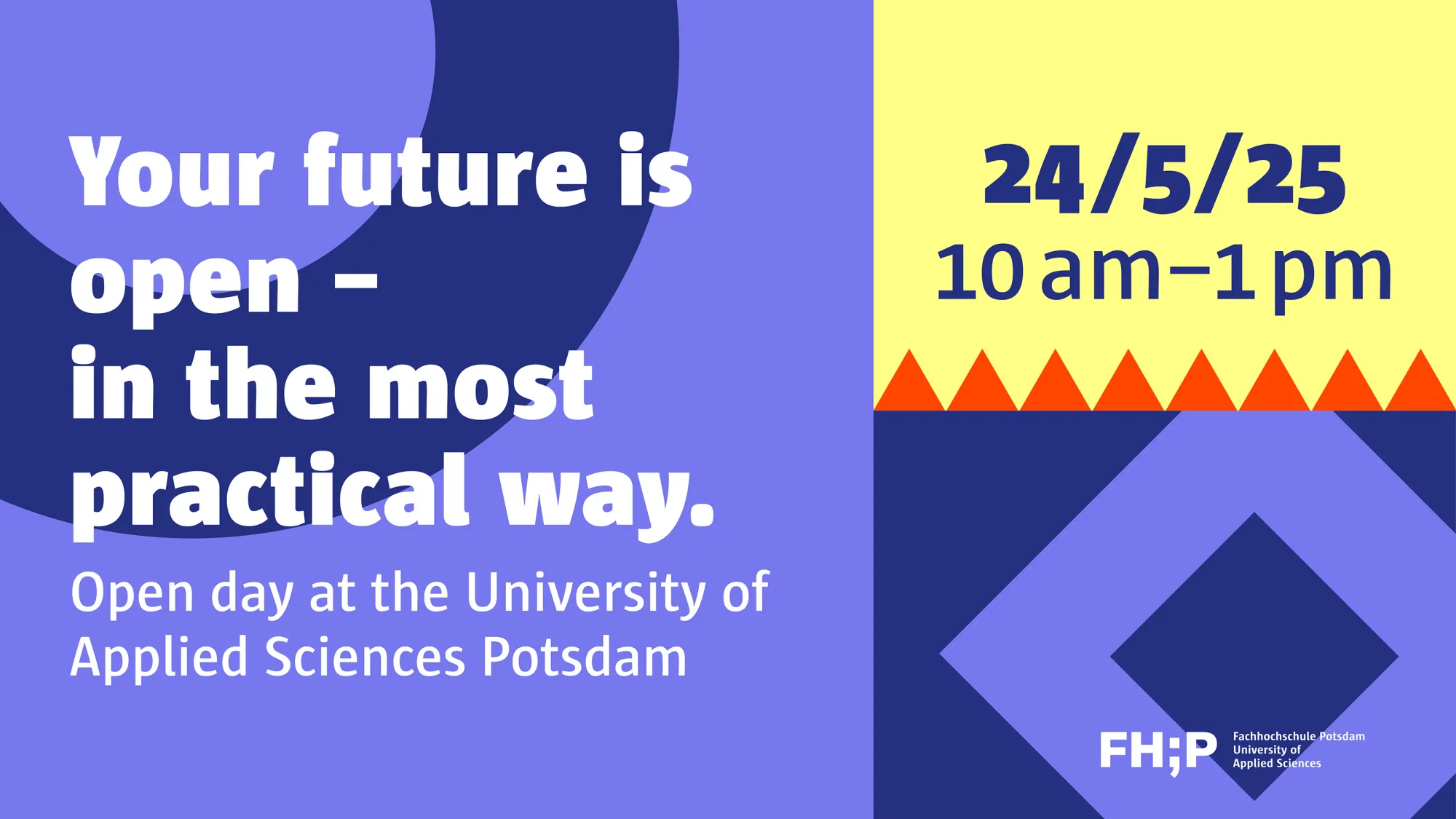
Information day 2025: We are opening our doors
Open Day at the University of Applied Sciences Potsdam: On the 24th of May 2025, you will get to know the diverse study programmes at our university, explore the campus and gain exclusive insights into our modern laboratories and workshops.
Take the opportunity to talk to students and lecturers in person and look forward to a varied programme.
Contact
The colleagues at the student counselling service provide information to prospective students, first-year students, parents, teachers and students on all general questions about the degree programme. If you have specific questions or concerns about the part-time distance learning programme in social work (BA), please contact the subject counselling service or the programme coordination.
Head of Degree Programme
Subject Counselling Service
Study Programme Coordination
These degree programs might also interest you
More courses| Department | Degree programme | Teaching language | Start of study | Application deadline |
|---|---|---|---|---|
| |
Childhood Studies and Children's Rights (MA) | English | Winter semester | Note: This degree programme will no longer be offered from winter semester 2024/25 |
| |
Early Childhood Education (BA) | German | Winter semester | 15.05. – 15.07. (admission restricted) |
| |
Early Childhood Studies (MA) | German | Winter semester | 15/06 – 15/10 (free of admission) |
| |
MA Social Work with a Focus on the Family | German | Winter semester | 15.05. – 22.06. (NC degree program) |
| |
Social Management (MA) | German | Summer semester | Note: This course of study will no longer be offered from winter semester 2024/25. |
| |
Social Work (BA) | German | Winter semester | 15/05 – 15/07 (restricted admission) |
| |
Social Work | Dual-Digital (BA) | German | Winter semester | 15/06 – 15/07 (free of admission) |
| |
Social Work | Part-time Distance Learning Study Programme (BA) | German | Summer semester | 15/12 –15/01 (admission restricted) |
Career Prospects
Career Prospects
The close integration of theory and practice enables a direct transfer of knowledge and the inclusion of everyday professional life from the first semester on. State recognition as a childhood educator is possible, as is a subsequent master's degree. Learn more about the professional profile of childhood educators.
Possible occupational areas
- Pedagogical work in institutions of (early) childhood education such as crèches, kindergartens, after-school care centers, all-day schools
- Cooperation in counseling centers and family centers
- Work in institutions for early help
- Institutions for assisted living for parents with young children
- Collaboration in practice reform projects
- Public relations and networking in the community
- Political education work
Possible MA programs at the University of Applied Sciences Potsdam

State recognition as a childhood educator
After obtaining the BA degree, you can apply for state recognition as a childhood educator. The basis for state recognition is the Brandenburg Social Professions Act. On the pages of the Ministry of Education, Youth and Sports of the State of Brandenburg and the State Office for Social Affairs and Supply of the State of Brandenburg you will find all important information.
The fact sheet of the Ministry of Education, Youth and Sports of the State of Brandenburg summarizes the documents to be submitted for state recognition as a childhood educator.
These degree programs might also interest you
More courses| Department | Degree programme | Teaching language | Start of study | Application deadline |
|---|---|---|---|---|
| |
Childhood Studies and Children's Rights (MA) | English | Winter semester | Note: This degree programme will no longer be offered from winter semester 2024/25 |
| |
Early Childhood Education (BA) | German | Winter semester | 15.05. – 15.07. (admission restricted) |
| |
Early Childhood Studies (MA) | German | Winter semester | 15/06 – 15/10 (free of admission) |
| |
MA Social Work with a Focus on the Family | German | Winter semester | 15.05. – 22.06. (NC degree program) |
| |
Social Management (MA) | German | Summer semester | Note: This course of study will no longer be offered from winter semester 2024/25. |
| |
Social Work (BA) | German | Winter semester | 15/05 – 15/07 (restricted admission) |
| |
Social Work | Dual-Digital (BA) | German | Winter semester | 15/06 – 15/07 (free of admission) |
| |
Social Work | Part-time Distance Learning Study Programme (BA) | German | Summer semester | 15/12 –15/01 (admission restricted) |
Study Contents
Study Contents
The program consists of compulsory modules, some of which are elective, research-based learning in workshops, practical days in institutions of the student's choice, internships in Germany or abroad, and concludes with the writing of a bachelor's thesis.
The module overview of the BABEK program and the overview of the curriculum contain further information on the structure and content of the degree program.
Teaching formats
In the degree program Early Childhood Education (BABEK), we work with different forms of learning so that the transfer of knowledge fits the respective topic and the students' daily study routine is varied.
- Seminars
- lectures
- self-organized study groups
- workshop seminars
- excursions
- practical days and longer internships
- Cooperation projects outside the university
Foundation modules
- Methods of empirical social and educational research
- Competencies in childhood education
- Education and educational science
- Developmental psychology and psychoanalytical concepts
- Legal foundations
- Heterogeneity in elementary education
- Leading and guiding
- Inclusion and Diversity
- Bachelor thesis and colloquium
Elective modules
- Educational aesthetics (music or theater)
- Applied social and educational research
- Educational area health and movement (dance or psychomotricity)
- Development and support (psychoanalytical thinking and acting or reform and elementary school pedagogy)
- Educational area Communication and Science (Literacy, New Media or Children's/Picture Books)
- Flex module (elective offered by all departments of the university)
Workshop modules
- Observation and documentation
- Bonding, education and promotion
- Project development
Projects from the department
More projectsEarly Help in a Clinical Setting for (Expectant) Parents with Mental Illness and at Risk of Addiction
The measure "Early help in a clinical setting for (expectant) parents with mental illness and at risk of addiction " is being developed in order to transfer parents under stress from inpatient to outpatient structures, to strengthen cooperation within early help and to ensure support during pregnancy and parenthood.
ÜberAl – Transitions of Deaf and Hard of Hearing People in Working Life
The research project funded by the Hans Böckler Foundation is investigating the challenges and needs of employees who sign during career transitions.
Fatherhood in the Penal System
A pilot study on the construction of parenthood by fathers in prison.
#GesellschaftBilden in the Digital Age. Perspectives of Social Work on Technological Challenges
The project establishes a cross-university network on digitalisation in social work as a subject of cooperative research and teaching.
Application & Contact
Dates & requirements for your application
The most important deadlines, dates and admission requirements for the bachelor's degree programme in early childhood education are compiled here. You can find out which steps you need to take for a successful application in the next section.
Dates
- 24th of May 2025: Open Day at the FH Potsdam
- until 15th of July: register and submit online application
- until 15th of July: apply for a higher semester to continue a degree programme you have started at the University of Applied Sciences Potsdam
Access requirements
- General university entrance qualification according to the Brandenburg university act: General university entrance qualification or entrance qualification for studies at universities of applied sciences or previous vocational training recognised as equivalent
How to apply!
In the following, we explain which aspects you should consider from registration for the central allocation of study places to enrolment.
Further information
The following links provide you, and especially international applicants, with further information on the topics of application and enrolment at the University of Applied Sciences Potsdam.
International applicants
You would like to apply for studies from the first or a higher semester and have acquired your school-leaving qualification and/or university degree abroad? Then you can have degrees and achievements acquired abroad recognised and study with us.
Application & Enrolment Procedure
The application and study service provides information and advice on general questions regarding the application process, admission and enrolment at the University of Applied Sciences Potsdam, application for a higher semester, but also on topics such as compensation for disadvantages, part-time studies, waiting semesters and hardship applications.
Contact & Services
The student counselling service provides information and advice on general questions about studying as well as on topics such as choosing a degree programme, application, enrolment and study organisation.
For subject-specific questions about module content, credit transfer, examinations or specialisations in the early childhood education degree programme (BA), the subject counselling service or programme coordination is the right place to go.
Head of Degree Programme
Subject Counselling Service
Study Programme Coordination
Study and Examination Service
Study Info Service
studien-info-service@fh-potsdam.de
bewerbungs-service@fh-potsdam.de
campuskarte@fh-potsdam.de
Study Service
studien-service@fh-potsdam.de
Exam Service
pruefungs-service@fh-potsdam.de
Family Affairs Commissioner
Office hours
Tue and Thu 9.30 am – 1.30 pm
Commissioner for University Employees with Impairment
Office hours
by arrangement

